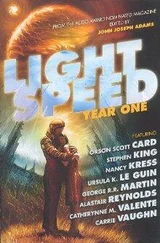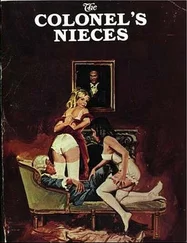Geoffrey Cousins - The Butcherbird
Здесь есть возможность читать онлайн «Geoffrey Cousins - The Butcherbird» весь текст электронной книги совершенно бесплатно (целиком полную версию без сокращений). В некоторых случаях можно слушать аудио, скачать через торрент в формате fb2 и присутствует краткое содержание. Жанр: Триллер, на английском языке. Описание произведения, (предисловие) а так же отзывы посетителей доступны на портале библиотеки ЛибКат.
- Название:The Butcherbird
- Автор:
- Жанр:
- Год:неизвестен
- ISBN:нет данных
- Рейтинг книги:5 / 5. Голосов: 1
-
Избранное:Добавить в избранное
- Отзывы:
-
Ваша оценка:
- 100
- 1
- 2
- 3
- 4
- 5
The Butcherbird: краткое содержание, описание и аннотация
Предлагаем к чтению аннотацию, описание, краткое содержание или предисловие (зависит от того, что написал сам автор книги «The Butcherbird»). Если вы не нашли необходимую информацию о книге — напишите в комментариях, мы постараемся отыскать её.
The Butcherbird — читать онлайн бесплатно полную книгу (весь текст) целиком
Ниже представлен текст книги, разбитый по страницам. Система сохранения места последней прочитанной страницы, позволяет с удобством читать онлайн бесплатно книгу «The Butcherbird», без необходимости каждый раз заново искать на чём Вы остановились. Поставьте закладку, и сможете в любой момент перейти на страницу, на которой закончили чтение.
Интервал:
Закладка:
‘Rupert, it’s wonderful of you to come. Is there any good cause you don’t support? None that I know of. How is Beryl? Any better? Ah, it’s a great burden to you, old chap. We all think of you, you know.’
Rupert Littlemore was a well-presented septuagenarian with a fine mane of silver-grey hair and a very ill wife. He looked like, and was, a retired naval commander, but was also a successful businessman with a considerable fortune derived from his family’s rural properties. He spoke in a clipped, direct manner, but when he smiled-which was, unusually, when he was genuinely pleased-his face came alive with joyful creases.
‘Very nice party, Laurence. Cheque’s in the mail. How’s that new CEO of yours? Up for the club. Name’s just gone on the board. Assume he’s a great fellow, otherwise you wouldn’t have him.’
Sir Laurence raised his thumb and forefinger to his chin in a gesture that a few people knew particularly well. It seemed to indicate deep thought but in fact was equivalent to a cobra eying a small rodent. ‘Really? I’d missed that. I usually check the board. I see.’ He withdrew the hand and checked the alignment of his pocket handkerchief. ‘Well nominated is he?’
Rupert Littlemore took half a pace back. ‘What? What do you want to know for? Of course-Stockford’s put him up. No problem, is there?’
Laurence Treadmore seldom answered questions of this nature directly. ‘You just took me by surprise, old fellow. Let me think about it. I only really know him in business. I’ve never even been to his home. Let me make some inquiries.’
Rupert’s thick black eyebrows shot up. ‘Not at all. Not necessary. I only asked because he’s your chief.’
‘It’s no trouble, don’t give it a thought. Now come and meet our new director. She’s the first woman ever to run these great gardens. You see how we’re moving with the times.’
Later that evening Sir Laurence sat in his study on the second floor of his two-storey apartment in The Piccadilly. He looked out over the Botanic Gardens, past Stone House where the party had recently wound up, to the black harbour beyond. The sky was lit only by a quarter moon but he could still see the thousands of birds wheeling in the neon lights of the city buildings. His was the antithesis of the book-lined study. There were no books. Sir Laurence found the reading of novels a great waste of time, there were few biographies that appealed since they rarely contained the type of information he was looking for and historical tomes, by definition, failed to deal with the most important moments in history. Sir Laurence was interested in the present and the future, particularly his present and future, and those of persons who might make these a little brighter. This was not, as he saw it, selfish thinking. If everyone took care of life with this focused view, there would be no need for welfare payments, charities, church raffles, soup kitchens and other annoying lead weights hanging from the sturdy belt of society. Let people look after themselves, keep their noses in their own business, and all would prosper.
Which brought him back, unpleasantly at this late hour, to Jack Beaumont. He reached behind him to a wall of panelling studded with silver knobs, pulled open one of twenty-two filing cabinet drawers concealed in the wall, and took from it a fresh folder which he spread on the desk. He examined its pristine whiteness with some pleasure. There was always the slight shiver that caused his spine to flex when he wrote a name on a new file. It was incredible, even to him, what events could overtake people’s lives, alter the smooth flow of their previous even currents, just from the notes he would make in the peace of this small room. He wrote the name BEAUMONT on the file in neat capital letters. There was no need for this. The man could have made a great deal of money and played polo or golf or rafted rapids or whatever he did for pleasure. It was bound to be something active and mindless. The thumb and forefinger of the left hand rose slowly to his chin, while the pen started to write. Of course, he could record a little of what Jack did for pleasure already and, in time, expected to record a great deal more. There were files and there were files. Sir Laurence liked order; otherwise there was chaos, and chaos was only in the interests of those who had nothing. Namely, those who didn’t apply themselves. It was late. Even the birds had stopped flying. Edith would be asleep. He would go down now.
‘What the hell is this, Jack? I’m not asking you if it’s true, I’m not some weak little lamb of a wife bleating about her ram fucking everything in the paddock. I’m asking you how it got in the fucking newspaper.’ Louise stood over him as he blinked in the shaft of early morning light and threw the newspaper down on the bed.
‘What? For Christ’s sake, keep it down. You’ll wake the kids.’
‘Don’t fucking tell me to be quiet when the whole of Sydney is sitting down to their bowls of low-cal yoghurt, imagining you screwing some juicy little bimbo.’
Jack jumped up from the bed in an attempt to hold her, but she backed away. ‘Christ, go easy on the language, darling. Whatever it is, it’s just a newspaper story, just a piece of gossip. No one pays any attention to this stuff.’
She snorted. ‘They pay more attention to it than they do to people starving in Africa.’ And then, very quietly, ‘Do not break the line of my trust.’
She stared at him for a moment and left him with the newspaper. It was only a couple of paragraphs in a column that purportedly covered the business affairs of prominent citizens but was in fact a daily outlet for bile and vengeance. And it was accompanied by a caricature of Jack wearing a nautical cap standing on the prow of a large boat with the name Honey Bear on the stern, incongruously carrying a riding whip. The caption ‘Jack-the-lad rides again’ was more than enough. The innuendos in the story were sufficiently subtle to skirt the defamation laws, but clear to the discerning reader nevertheless. He sat on the edge of the bed with the paper half-crumpled in his hand and looked around the room. It was Saturday morning. They’d slept late. Usually there’d be scrambled eggs and coffee with the kids before sport in the afternoon. It was his favourite time, slipping through the many sections of the brick-thick weekend paper, reading about the lives of other people. But not today.
It was a huge bedroom, the way Louise wanted it. A room they could almost live in, except for the lack of cooking facilities. The entrance was through a narrow corridor, opening out into a vaulted space with armchairs and couches, sun streaming through the skylight above onto the wooden floor, and then three steps up to a podium with the oversized bed and carpet your feet disappeared into. Louise had even sketched the concept drawing for this room, something she seldom did, including the bathroom with a big stone bath they could lie in together.
He crossed to the window and looked down on the normally quiet street. On Saturday morning it was lined with parked cars and families walking to the Temple Emmanuel at the end of the street, the men and boys in their black yarmulkes. The old lady from number twenty-three was walking her small, decrepit poodle on its customary toilet outing. She held the plastic bag prominently in one hand, ready to remove offending objects, but as he watched, the poodle painfully left its droppings on the neatly mown grass and the old lady, after glancing surreptitiously around to see if she was being observed, walked on with a smile of satisfaction. A young woman from the flats on the corner jogged by in a pair of shorts he loved to watch because they seemed to have a life of their own. But this morning he turned away to face the music in his own house.
Читать дальшеИнтервал:
Закладка:
Похожие книги на «The Butcherbird»
Представляем Вашему вниманию похожие книги на «The Butcherbird» списком для выбора. Мы отобрали схожую по названию и смыслу литературу в надежде предоставить читателям больше вариантов отыскать новые, интересные, ещё непрочитанные произведения.
Обсуждение, отзывы о книге «The Butcherbird» и просто собственные мнения читателей. Оставьте ваши комментарии, напишите, что Вы думаете о произведении, его смысле или главных героях. Укажите что конкретно понравилось, а что нет, и почему Вы так считаете.












